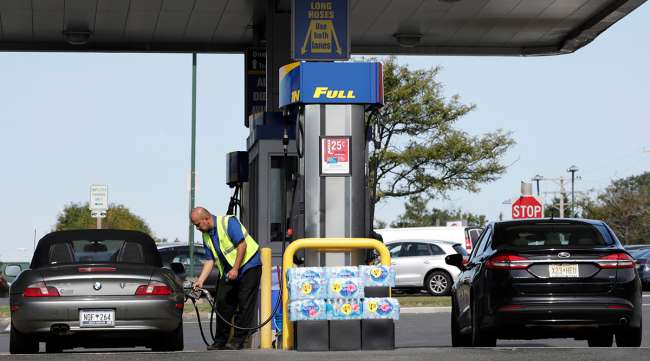NJ.com
Gas, Diesel Will Be Cheaper in New Jersey Come Oct. 1

[Stay on top of transportation news: Get TTNews in your inbox.]
New Jersey’s gasoline tax will drop 8.3 cents to 42.4 cents a gallon on Oct. 1 after drivers were forced to pay more at the pump a year ago, state officials announced Aug. 24.
Drivers were hit with a 9.3-cent hike last October as the state sought to recoup hundreds of millions in revenue lost when drivers stayed home during the coronavirus pandemic.
“Because actual consumption in fiscal-year 2021 was so closely in line with our projections made last August, coupled with the fact that consumption in the current fiscal year is projected to be above last fiscal year’s levels, our analysis of the formula dictates an 8.3-cent decrease this coming October,” state Treasurer Elizabeth Maher Muoio said in a statement.

How much impact does driver pay have in hiring drivers? And what else can fleets do to recruit and retain quality talent? Hear a snippet from DriverReach founder and CEO Jeremy Reymer, above, and listen to the full program at RoadSigns.TTNews.com.
“We are pleased that this dedicated funding stream continues to provide billions of dollars across the state to support our critical transportation infrastructure needs,” she said.
Beginning Oct. 1, drivers will pay 42.4 cents a gallon for gasoline and 49.4 cents on a gallon of diesel. That’s down from 50.7 cents for gas and 57.7 cents for diesel.
Each penny on the tax typically figures out to about $50 million in revenue.
At 42.2 cents a gallon, New Jersey’s gas tax will drop from the fourth-highest among U.S. states to 10th, behind California, Illinois, Pennsylvania, Nevada, Hawaii, Indiana, Washington, New York and Michigan, according to a July survey by the American Petroleum Institute.
New Jersey’s tax on gasoline has risen more than 36 cents a gallon since 2016, when former Gov. Chris Christie and Democrats who control the Legislature agreed to a 23-cents-a-gallon hike to raise money for road and rail projects.
That deal also laid the groundwork for future adjustments to the tax rate by guaranteeing the gas tax, which fluctuates based on how much gas people buy, will generate enough revenue to pay for the eight-year, $16 billion Transportation Trust Fund program.
If gas sales and gas tax dollars are booming, then the treasurer can reduce the tax. But if it falls short of the $2 billion target in one year, the treasurer is supposed to increase it in the next.
Murphy raised the tax 9.3 cents a gallon last fall, after a 4.3-cent increase in 2018. He did not hike it in 2019 despite a slight shortfall.
Former NJ Advance Media Staff Writer Samantha Marcus contributed to this report.
Want more news? Listen to today's daily briefing below or go here for more info:
Distributed by Tribune Content Agency, LLC




